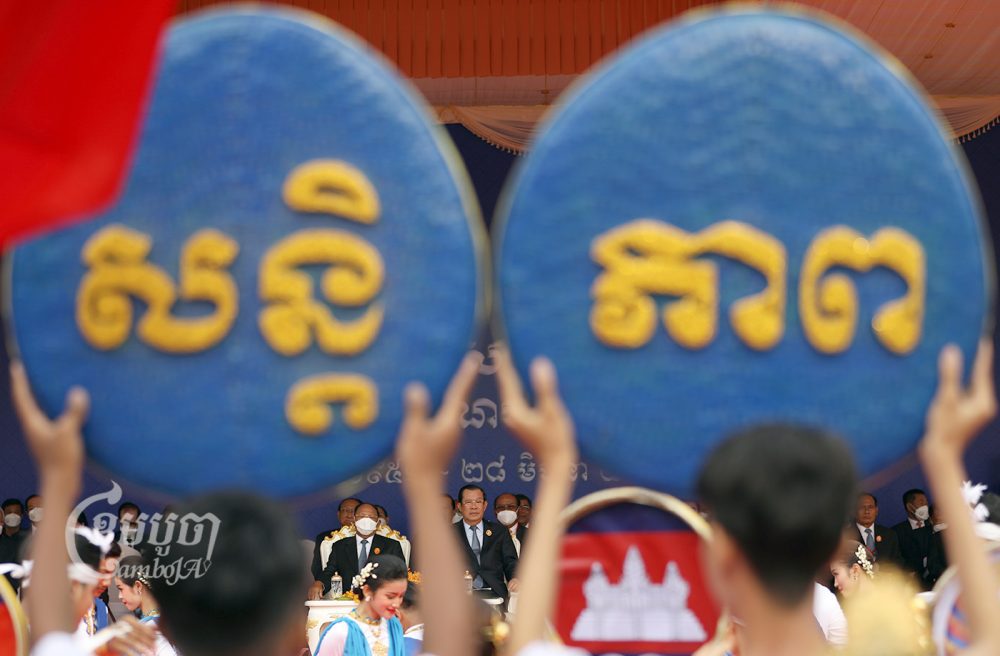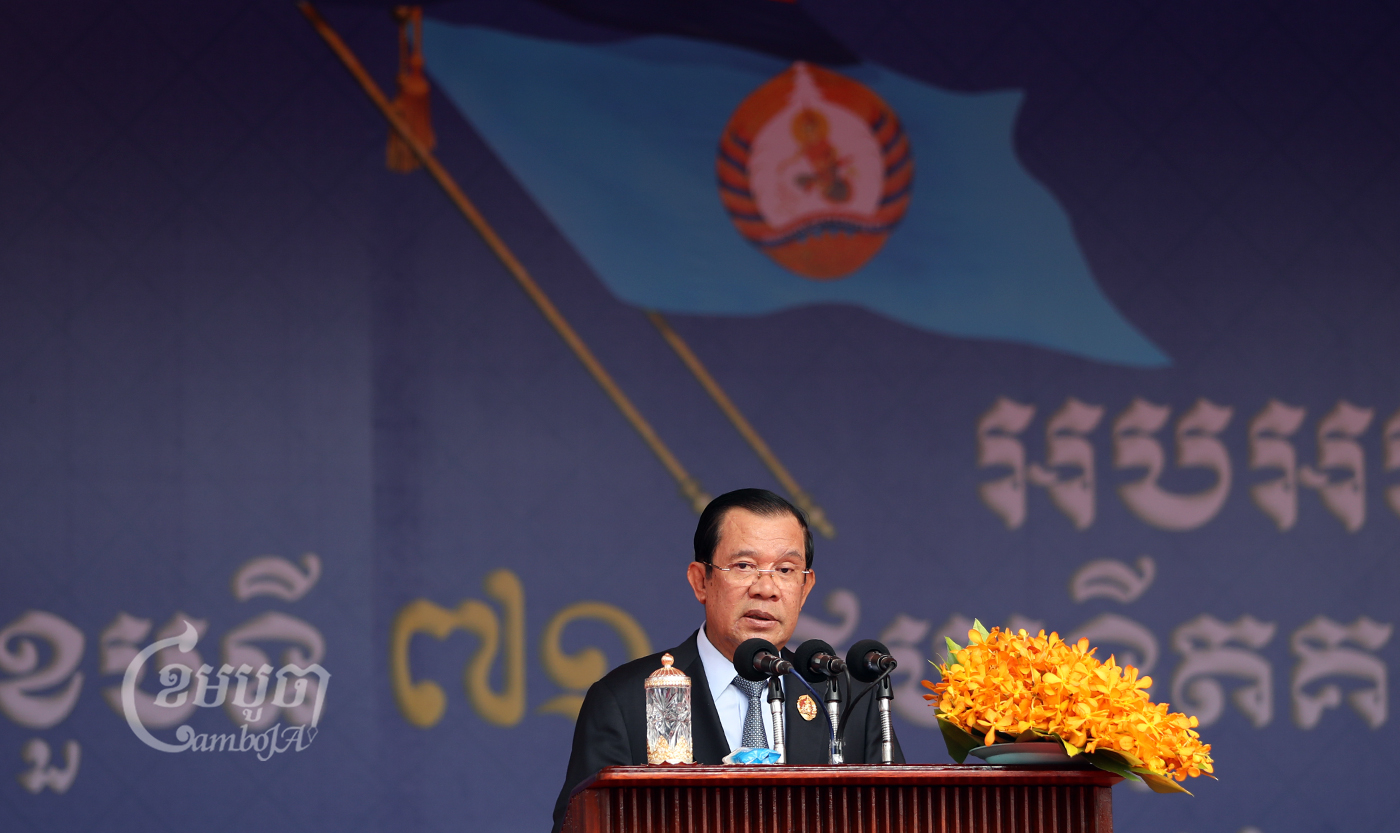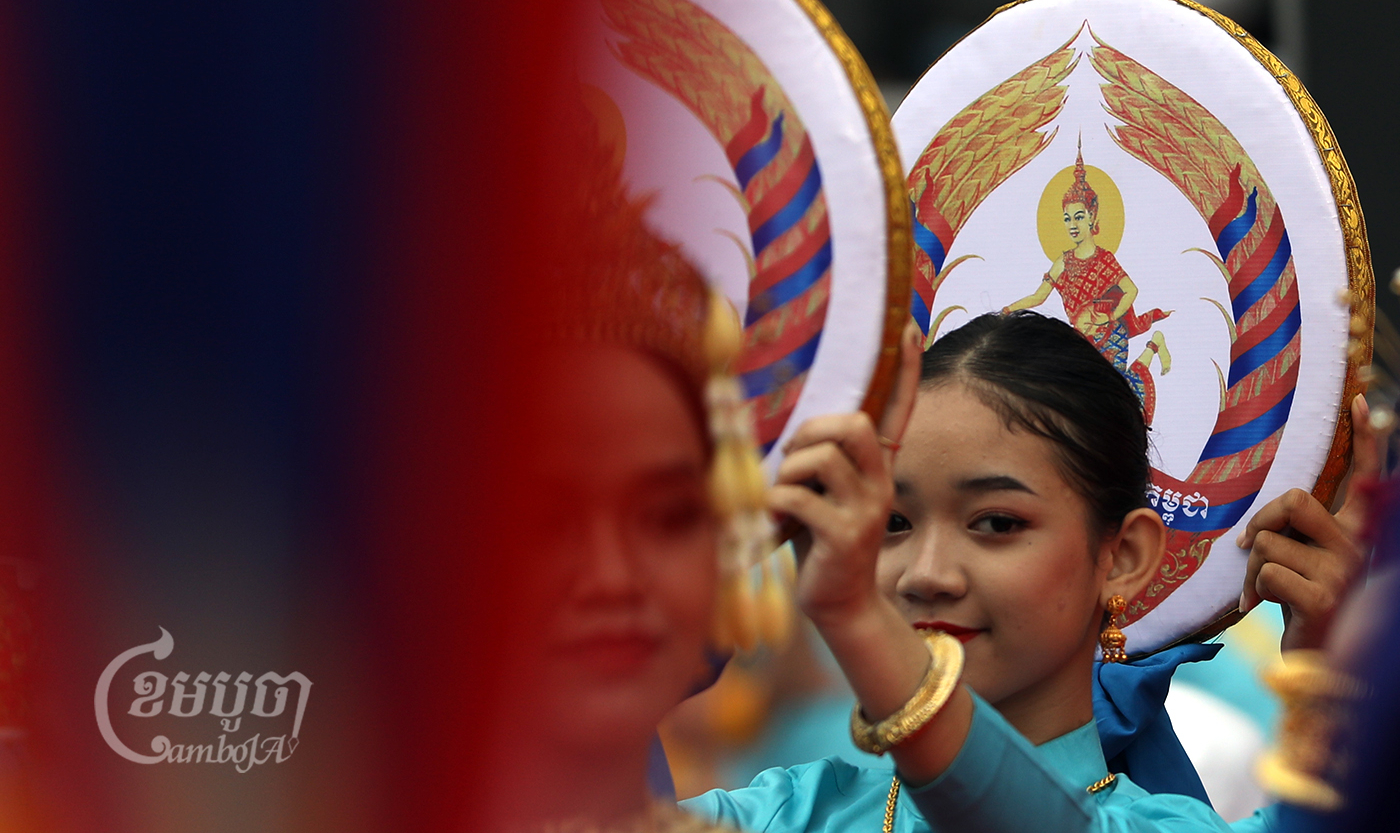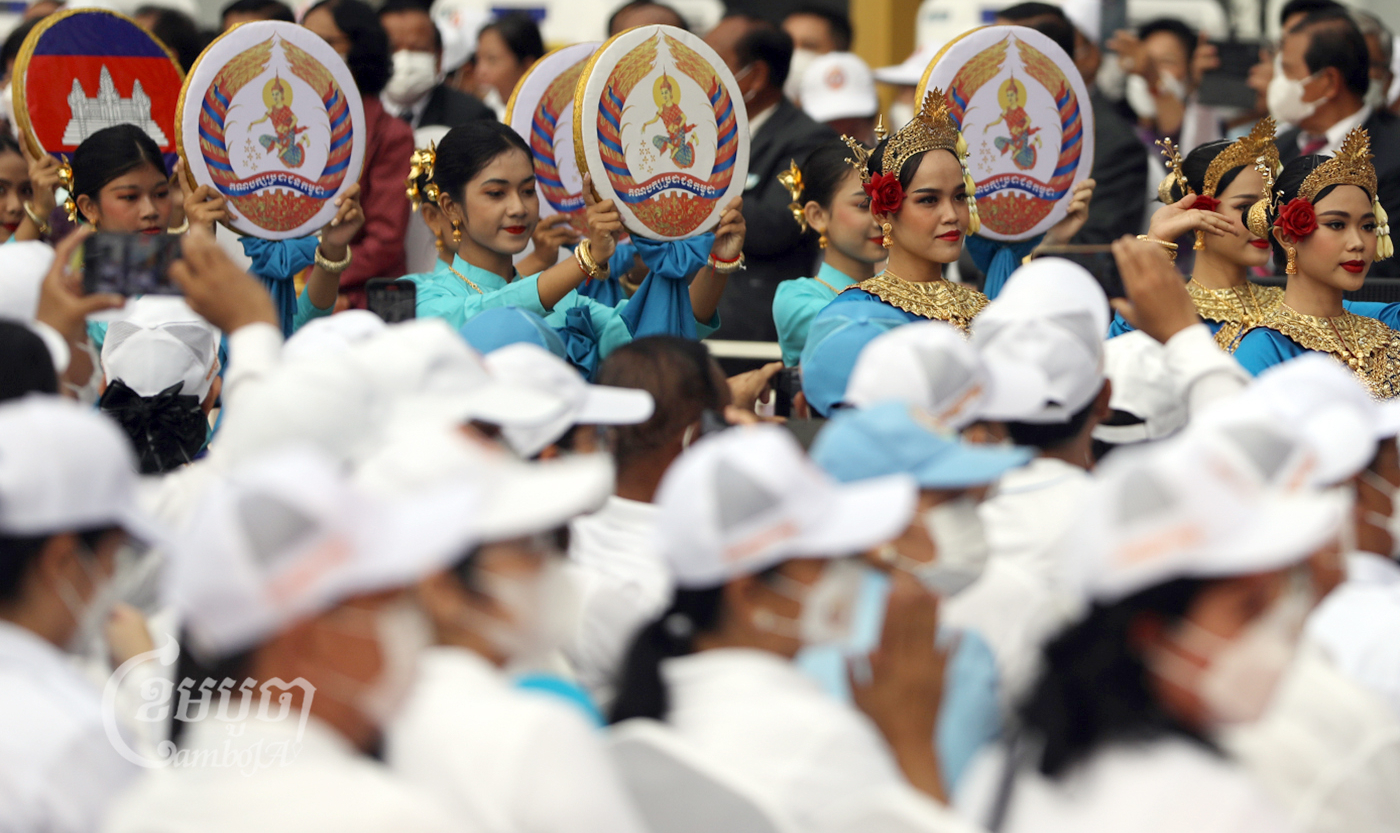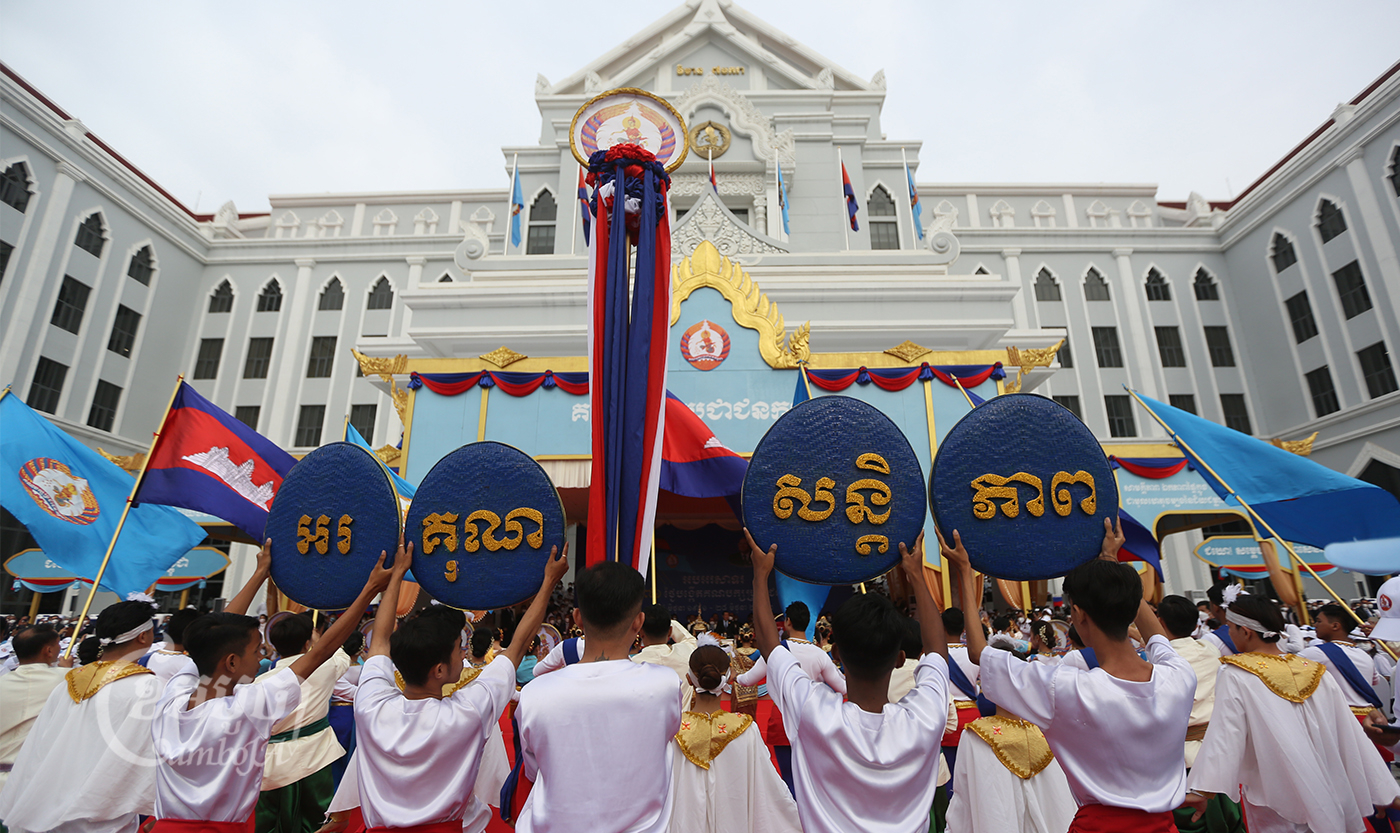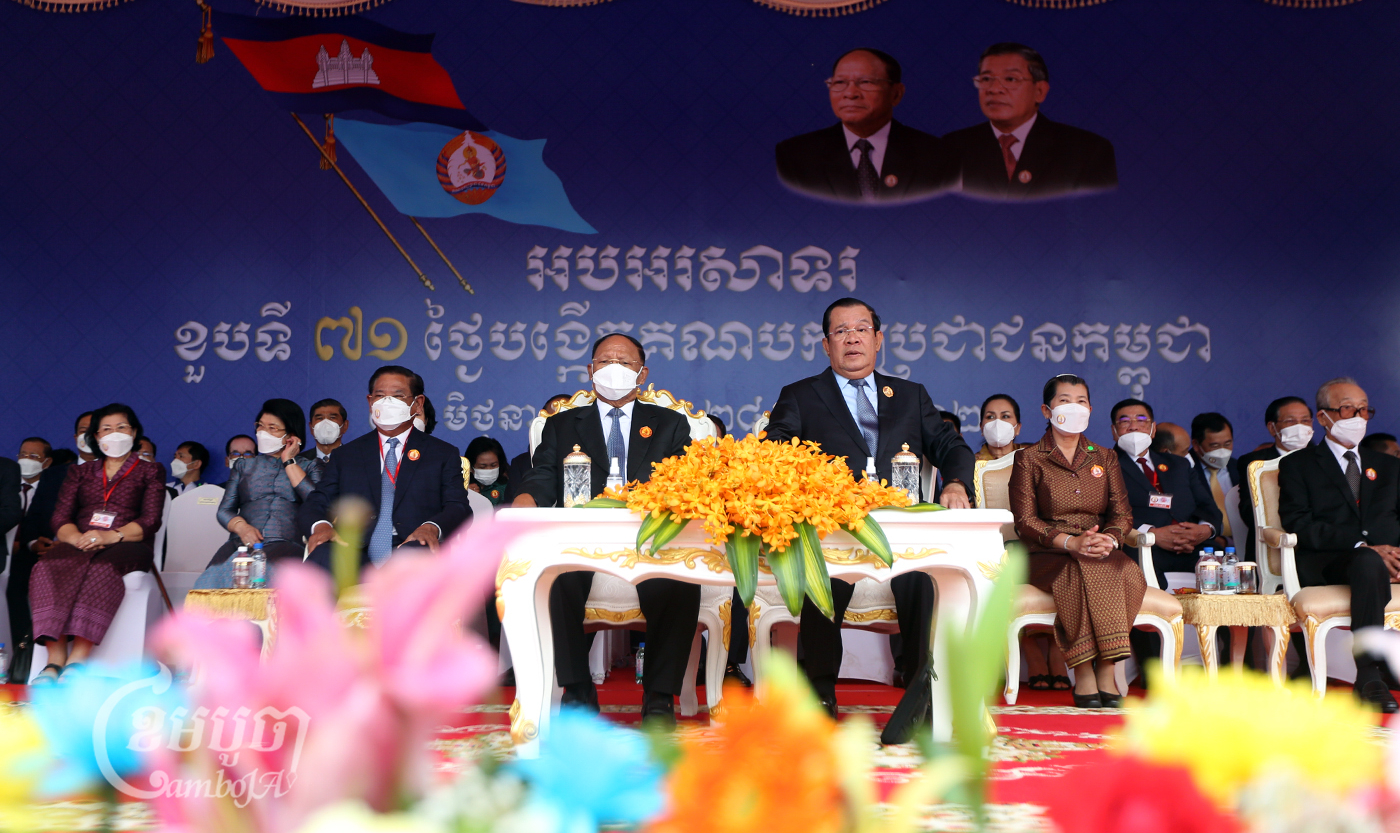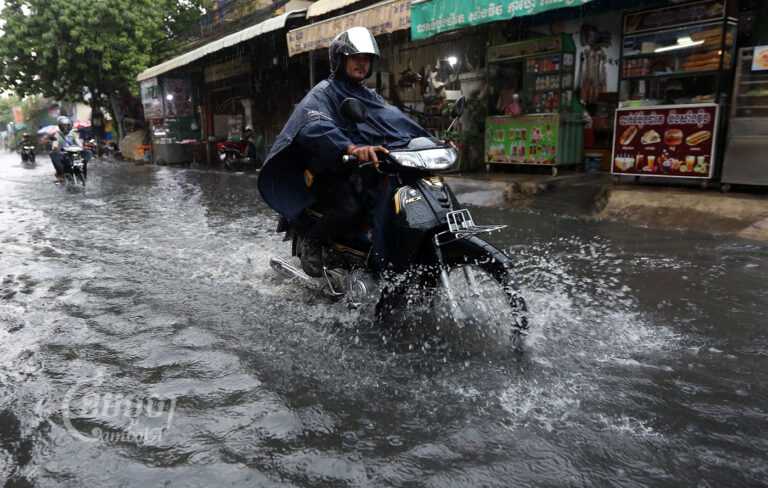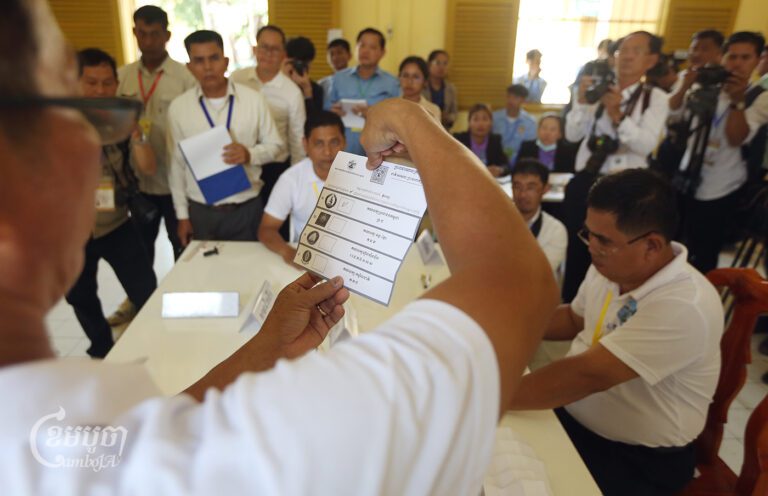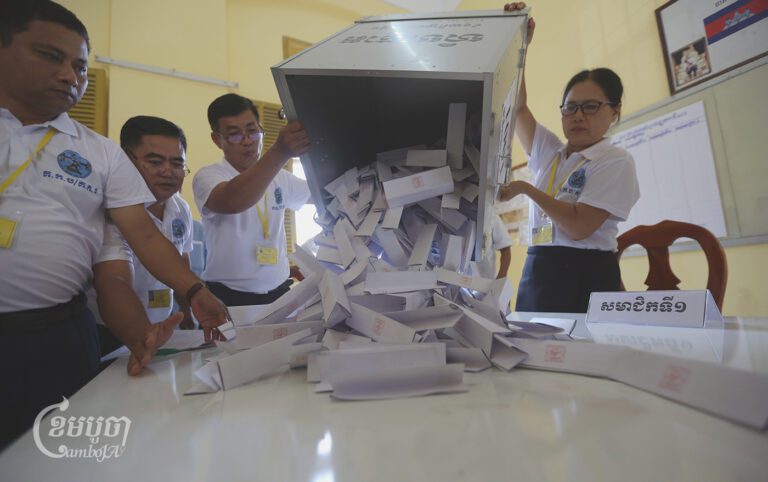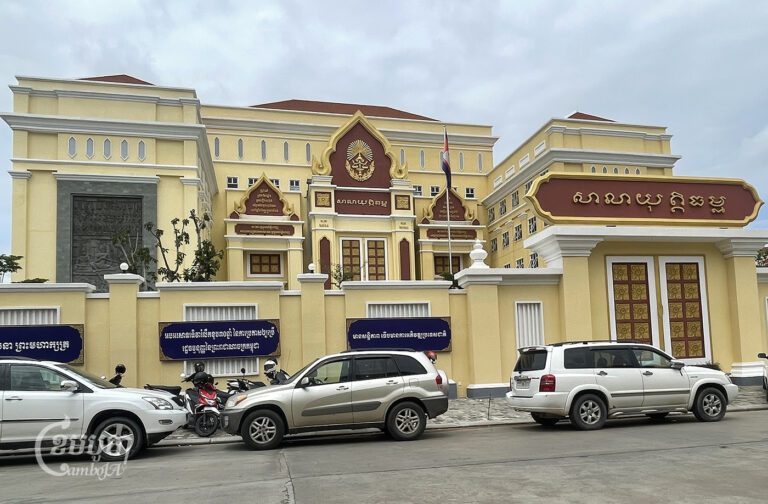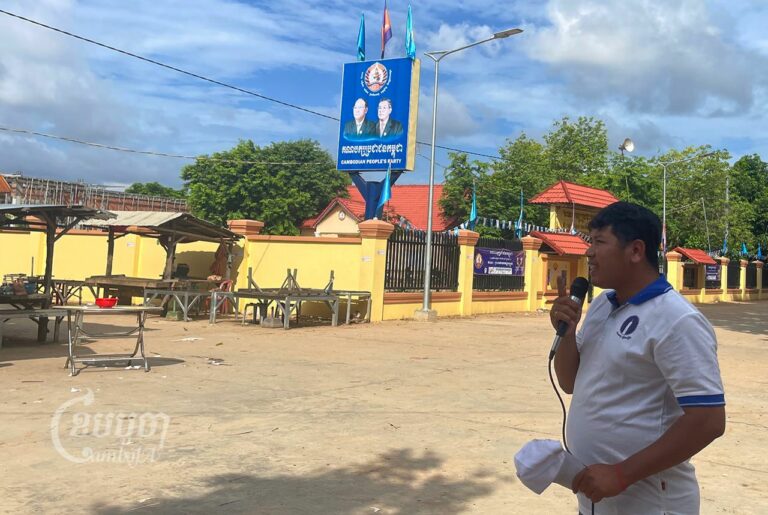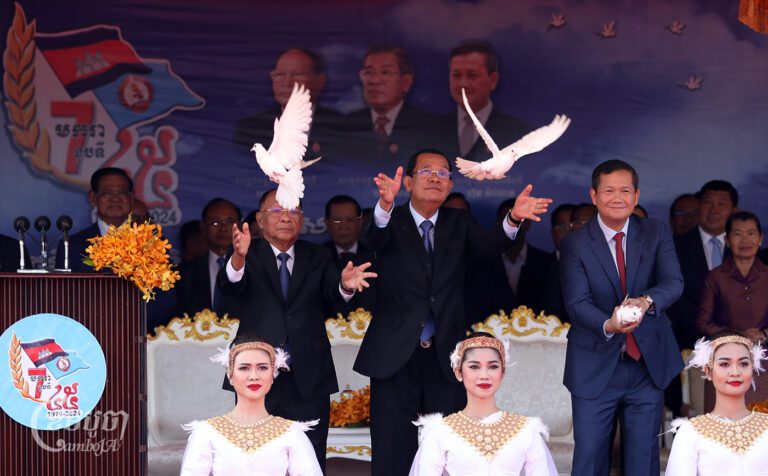Prime Minister Hun Sen lauded his party’s overwhelming victory in commune elections and vowed to win national polls next year, as he marked the 71st anniversary of the founding of the Cambodian People’s Party (CPP) on Tuesday.
He praised the June 5th vote as “free and fair,” after official results released by the National Election Committee last week showed the CPP won 74.3 percent of the vote compared to the opposition Candlelight Party’s 22.3 percent.
“This victory will make the Cambodian People’s Party stronger ahead of the election to choose members of the National Assembly in 2023,” said the prime minister, who has been in power for 37 years.
Thousands of CPP members attended the celebrations at the party’s Phnom Penh headquarters, with Hun Sen saying their victory in the commune elections showed Cambodian citizens want the party in power at both national and local levels.
He added that their electoral success showed the party’s commitment to developing the country and maintaining peace.
 The Cambodian People's Party (CPP) marks the 71st anniversary of the establishment of the party in Phnom Penh, June 28, 2022. CamboJA/ Pring Samrang
The Cambodian People's Party (CPP) marks the 71st anniversary of the establishment of the party in Phnom Penh, June 28, 2022. CamboJA/ Pring Samrang The Cambodian People's Party (CPP) marks the 71st anniversary of the establishment of the party in Phnom Penh, June 28, 2022. CamboJA/ Pring Samrang
The Cambodian People's Party (CPP) marks the 71st anniversary of the establishment of the party in Phnom Penh, June 28, 2022. CamboJA/ Pring Samrang The Cambodian People's Party (CPP) marks the 71st anniversary of the establishment of the party in Phnom Penh, June 28, 2022. CamboJA/ Pring Samrang
The Cambodian People's Party (CPP) marks the 71st anniversary of the establishment of the party in Phnom Penh, June 28, 2022. CamboJA/ Pring Samrang The Cambodian People's Party (CPP) marks the 71st anniversary of the establishment of the party in Phnom Penh, June 28, 2022. CamboJA/ Pring Samrang
The Cambodian People's Party (CPP) marks the 71st anniversary of the establishment of the party in Phnom Penh, June 28, 2022. CamboJA/ Pring Samrang The Cambodian People's Party (CPP) marks the 71st anniversary of the establishment of the party in Phnom Penh, June 28, 2022. CamboJA/ Pring Samrang
The Cambodian People's Party (CPP) marks the 71st anniversary of the establishment of the party in Phnom Penh, June 28, 2022. CamboJA/ Pring Samrang
The NEC results showed the CPP won 1,648 out of a total of the country’s 1,652 commune chief positions, with the Candlelight Party taking just four. Nine out of the 17 political parties that contested the poll received commune council seats, but the CPP took by far the lion’s share.
The ruling party won 9,376 seats, followed by the Candlelight Party with 2,198 seats, while royalist Funcinpec won 19 seats. The Khmer National United Party won 13 seats, the Grassroots Democratic Party took six seats, the Khmer National Love Party won 5 seats, and the Cambodian Youth Party three. The Kampuchea Niyum Party and the Beehive Social Democratic Party received one seat each.
Korn Savang, an advocacy coordinator at the Committee for Free and Fair Elections in Cambodia (Comfrel), said one of the factors that helps the CPP retain its hold on power is large levels of support from civil servants, especially the armed forces.
Meach Sovannara, a former senior official from the banned Cambodia National Rescue Party (CNRP), said it was evident the NEC was under the control of the ruling party.
Previously, the NEC was composed of four members appointed by the opposition party and four by the ruling party, along with one from civil society. After the dissolution of the opposition CNRP in 2017, when their National Assembly seats were reassigned to the ruling party, the opposition members resigned and were replaced by ruling party members.
On June 7, five election observer organizations released a preliminary report detailing irregularities including the presence of armed forces at polling stations and inadequate efforts to ensure voters were properly registered.
In addition, during the ballot count, at some polling stations observers were banned from entering. At others the windows were closed while ballot counting was underway to block people from watching, and results after counting were not publicly displayed.
Thach Setha, vice president of the Candlelight Party, could not be reached for comment.


